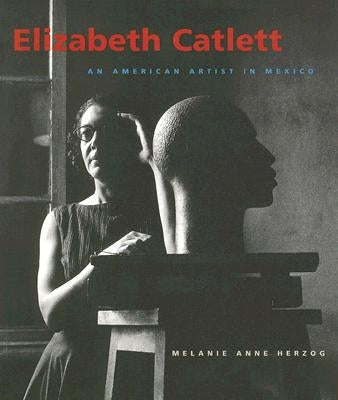Before you leave...
Take 20% off your first order
20% off
Enter the code below at checkout to get 20% off your first order
Discover summer reading lists for all ages & interests!
Find Your Next Read

Elizabeth Catlett, born in Washington, DC, in 1915, is widely acknowledged as a major presence in African American art, and her work is celebrated as a visually eloquent expression of African American identity and pride in cultural heritage. But this is not the whole story. She has lived in Mexico for 50 years, as a citizen of that country since 1962, and she and her husband, artist Francisco Mora, have raised their children there. For 20 years she was a member of the Taller de Gr畴ica Popular (Popular Graphic Arts Workshop) and she was the first woman professor of sculpture at the Universidad Nacional Automa de M騙ico. Her extraordinary career has stretched from her years as a student at Howard University during the 1930s through various political and social movements--including the Chicago Renaissance of the 1940s, the Black Power and Black Arts movements, the Mexican Public Art Movement, and feminism--which have informed her art.
This richly illustrated and informative monograph is the first to document the full range of Catlett's life and work. In addition to thoroughly researching primary source materials and to critiquing individual art works with sensitivity and erudition, the author has conducted numerous interviews with Catlett and has analyzed with clarity the political context of her work and her diverse sympathies and allegiances. Herzog examines key artistic influences and shows how Catlett transformed an extraordinary stylistic vocabulary into a socially charged statement.
In tracing Catlett's long and continuing career as a graphic artist and sculptor in Mexico, Herzog explores an important period in Catlett's life between the 1950s and the 1970s about which almost nothing is known in the United States. She examines the "Mexicanness" in Catlett's work in its fluent relationship to the underlying and constant sense of African American identity she brought with her to Mexico. Herzog's solidly grounded interpretation offers a new way to understand Catlett's work and reveals this artist as a fascinating and pivotal intercultural figure whose powerful art manifests her firm belief that the visual arts can play a role in the construction of a meaningful identity, both transnational and ethnically grounded.
Melanie Anne Herzog is associate professor of art history at Edgewood College in Madison, Wisconsin.
Thanks for subscribing!
This email has been registered!
Take 20% off your first order
Enter the code below at checkout to get 20% off your first order